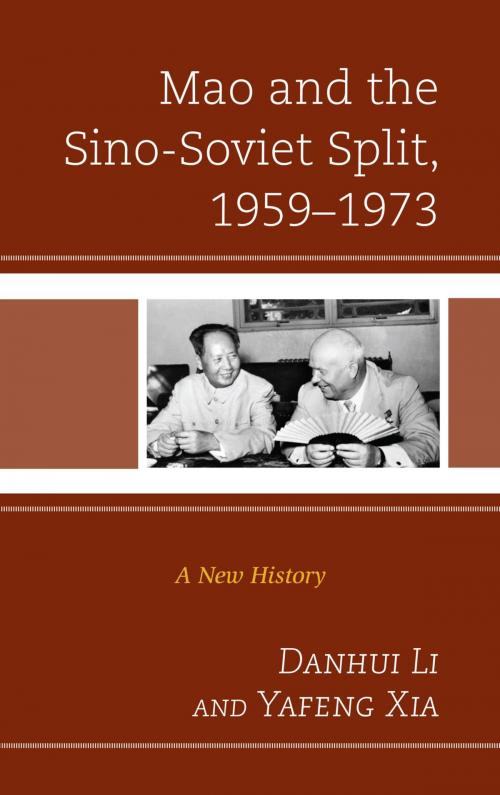Mao and the Sino-Soviet Split, 1959–1973
A New History
Nonfiction, History, Asian, China, Russia, Social & Cultural Studies, Political Science, International, International Relations| Author: | Danhui Li, Yafeng Xia | ISBN: | 9781498511674 |
| Publisher: | Lexington Books | Publication: | September 15, 2018 |
| Imprint: | Lexington Books | Language: | English |
| Author: | Danhui Li, Yafeng Xia |
| ISBN: | 9781498511674 |
| Publisher: | Lexington Books |
| Publication: | September 15, 2018 |
| Imprint: | Lexington Books |
| Language: | English |
In the twenty-first century, students of Cold War history are fortunate to have the fruits of several major works on the Sino-Soviet split by European and American scholars. What is lacking in English literature, however, is a book based on international documentation, especially Chinese archival documents that tell the story from the Chinese perspective.
Based on archival materials from several countries—particularly China—and more than twenty years of research on the subject, two prominent Chinese historians, Danhui Li and Yafeng Xia, offer a comprehensive look at the Sino–Soviet split from 1959, when visible cracks appeared in the Sino-Soviet alliance, to 1973, when China’s foreign policy changed from an “alliance with the Soviet Union to oppose the United States” to “aligning with the United States to oppose the Soviet Union.” Mao and the Sino-Soviet Split, 1959–1973: A New History is a reevaluation of the history of the Sino-Soviet split and offers the first comprehensive account of it from a Chinese perspective.
This book, together with its prequel Mao and the Sino–Soviet Partnership, 1945–1959: A New History, is important because any changes in Sino-Soviet relations at the time affected, and to a great extent determined, the fate of the socialist bloc. More importantly, it directly impacted and transformed the international political situation during the Cold War. These two books promise to be a reevaluation of the history of the Sino-Soviet alliance from its birth to its demise. These fascinating books will be a crucial resource for all those interested in the topic and will stand as the definitive work on the Sino-Soviet alliance for years to come.
In the twenty-first century, students of Cold War history are fortunate to have the fruits of several major works on the Sino-Soviet split by European and American scholars. What is lacking in English literature, however, is a book based on international documentation, especially Chinese archival documents that tell the story from the Chinese perspective.
Based on archival materials from several countries—particularly China—and more than twenty years of research on the subject, two prominent Chinese historians, Danhui Li and Yafeng Xia, offer a comprehensive look at the Sino–Soviet split from 1959, when visible cracks appeared in the Sino-Soviet alliance, to 1973, when China’s foreign policy changed from an “alliance with the Soviet Union to oppose the United States” to “aligning with the United States to oppose the Soviet Union.” Mao and the Sino-Soviet Split, 1959–1973: A New History is a reevaluation of the history of the Sino-Soviet split and offers the first comprehensive account of it from a Chinese perspective.
This book, together with its prequel Mao and the Sino–Soviet Partnership, 1945–1959: A New History, is important because any changes in Sino-Soviet relations at the time affected, and to a great extent determined, the fate of the socialist bloc. More importantly, it directly impacted and transformed the international political situation during the Cold War. These two books promise to be a reevaluation of the history of the Sino-Soviet alliance from its birth to its demise. These fascinating books will be a crucial resource for all those interested in the topic and will stand as the definitive work on the Sino-Soviet alliance for years to come.















